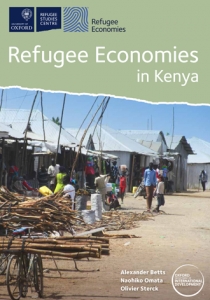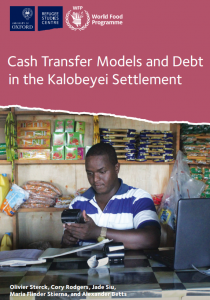alt=""
Credit: WFP/M. Karimi
Kenya
Kenya has restricted socio-economic freedoms for refugees since the 1990s, notably denying them the right to work and limiting movement outside camps.
Between 2016 and 2017, we undertook initial first wave data collection in and around the Kakuma refugee camps and Nairobi. We followed this up with a second wave of data collection with the same cohort of refugees and host community members in 2018 and 2019. Complementing this research, we have also undertaken a three-year study in Turkana County focusing on comparing outcomes for recently arrived refugees integrated into the new Kalobeyei settlement and the original Kakuma refugee camp.
Refugee Economies in Kenya
Based on a survey with 4,355 respondents, our Refugee Economies in Kenya report represents preliminary analysis of our data from Kenya, and is one of the first publications to ask ‘what difference does it make to be a refugee?’. Based on the research, four sets of factors seem to explain these gaps between refugees and hosts:
- Regulation – how you are governed;
- Networks – who you know;
- Capital – what you have;
- Identity – who you are.
Three practical insights stand out: 1) even in a country with restricted regulations, refugees are economically active; 2) refugees’ and hosts’ economic lives are interdependent: a good refugee policy must also be a good host community policy; 3) every major refugee-hosting context should have an economic policy and strategy specifically for refugees and the immediate host community, based on robust analysis and consultation.
Kalobeyei Settlement
In collaboration with the World Food Programme, we have undertaken a series of waves of data collection in both the new Kalobeyei settlement and the Kakuma refugee camps to examine what difference the new settlement design makes to refugee self-reliance and food security. More information about this can be found on our Kalobeyei page.


